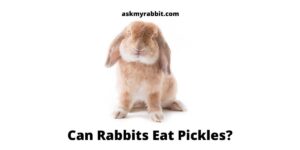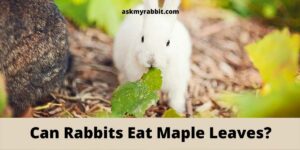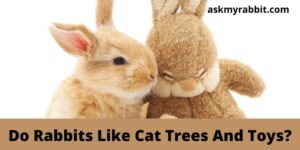Rabbits are known for their voracious appetites. This is regardless of whether they are pets or wild animals living in your yard. Nonetheless, the safety and well-being of our bunnies is of the utmost importance to us as their owners,
So, how long can rabbits go without food?
Rabbits may go for up to three days without food on average. Grazers like rabbits need a constant supply of food. However, there is a considerable risk of acquiring a potentially fatal illness called GI Statis. This will happen if they go more than 12 hours without eating.
A rabbit’s digestion slows down because of gastrointestinal stasis. When their system slows down, the stomach becomes dehydrated. Food is more difficult to move through the digestive tract, resulting in gas accumulation.
Your pet rabbit does not need to have GI stasis. Many rabbit owners never have to worry about this problem since they follow a proper feeding regimen and stick to it.
In this article, we will tell you everything you need to know about how long your bunny can go without food. So, keep reading!
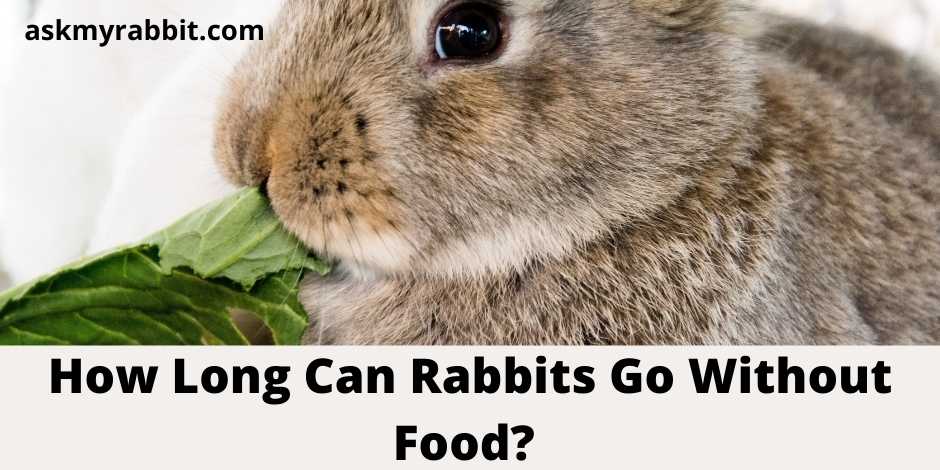
How Much Food Does A Rabbit Need To Eat?
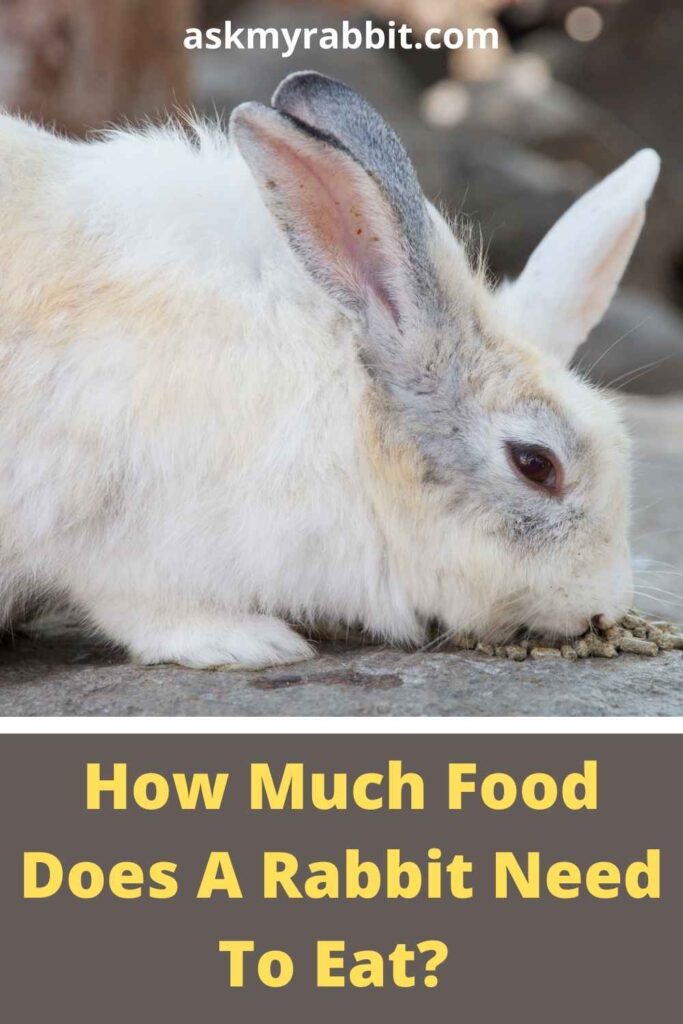
For every 6 pounds of body weight, an adult rabbit should be given 14 cups of pellets. He should also be given 2 cups of vegetables and 1-2 ounces of fruit per day. This is the recommended quantity of food for rabbits.
Adult rabbits should be given full access to timothy, grass, and oat hay.If you realise your rabbit is becoming fat, reduce the quantity of fruit and pellets it eats. Be sure that your rabbit is getting the nourishment it needs.
Compared to younger rabbits, senior rabbits have a different issue. We recommend that you increase the quantity of pellets you give your senior rabbit if you see them losing weight.
It’s also possible to reinstate alfalfa hay in your pet’s diet. This will give them a higher-calorie, yet still nutritious, food alternative.
Baby rabbits are allowed to consume as much alfalfa hay and pellets as they like for the first year. During the first three weeks of their lives, babies will only get breast milk from their mother. Starting at three weeks, they will be able to eat solid food like hay and pellets.
How Often Does A Rabbit Need To Eat?
Rabbits must have access to food and water at all times. Also, they should be eating most of their awake time, with a few minutes of break time.
They eat often throughout the day, rather than at set meal times. They are able to keep their stomachs and intestines hydrated. This, in turn, permits food to pass through their system and be eliminated in a timely manner.
The rabbit’s stomach becomes more parched the longer it goes without nourishment. Gas and bloating may occur as a result of a dehydrated stomach’s inability to transfer food through the digestive system.
Do Rabbits Die If They Don’t Eat?
Yes, rabbits may die if they do not eat. A rabbit’s digestive system is based on ingesting small quantities of food on a regular basis. This shuts off immediately when the rabbits stop feeding.
When the gastrointestinal tract stops working correctly, it may cause bloating. This is called Gastrointestinal Stasis and it is very uncomfortable.
The rabbit’s reduced appetite is exacerbated by the discomfort. It rapidly spirals out of control, so obtaining treatment as soon as possible is critical.
How Long Can A Rabbit Go Without Food Before Dying?
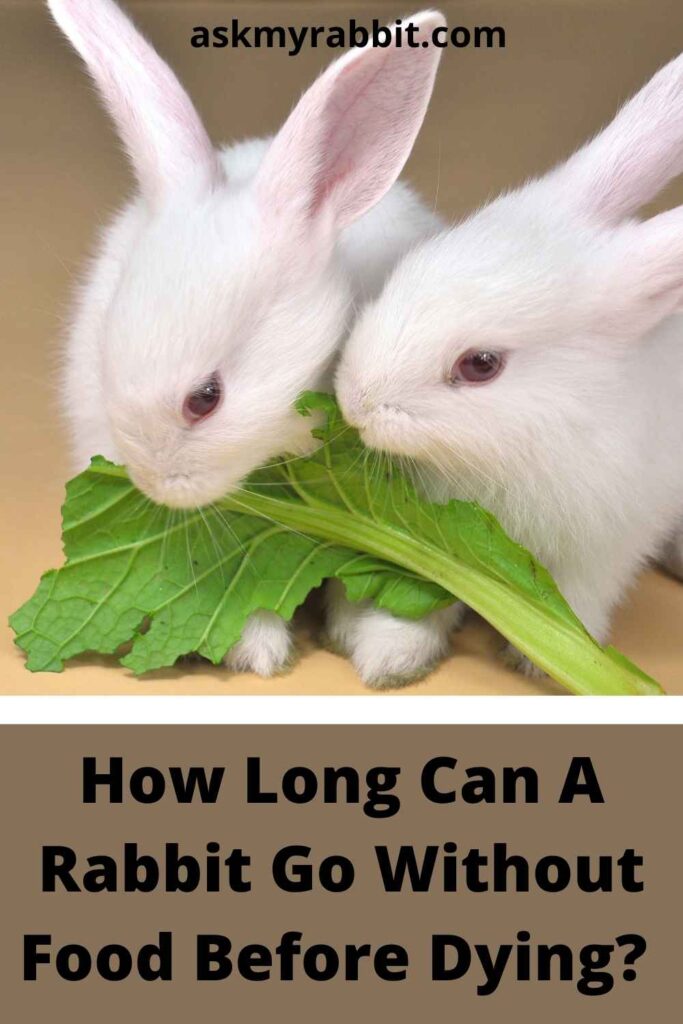
A rabbit can go without food for three to four days if it is not fed. However, if your bunny is not fed for more than 12 hours, they may develop a life-threatening condition. This is known as GI Stasis, and it may lead to his death.
Rabbits need to be fed almost all the time. If you find your rabbit isn’t eating, don’t hesitate to call your veterinarian right away.
In addition to preventing GI Stasis, there may be an underlying problem. It might be preventing your rabbit from wanting to eat.
However, the age, size, and health of your rabbit might also play a role in the amount of time they can go without food.
Without food, a rabbit may survive for three to four days. A kit or senior underweight rabbit, on the other hand, may only make it a few hours past the 12-hour mark. Therefore, always assume that your rabbit can’t go more than 12 hours without eating.
If you’re going away for an extended period of time, make sure your rabbit is fed and hydrated by someone else. In order to avoid worrying about your rabbit running out of food or water while you are gone for more than a few days, have someone else look after it.
How Long Can Rabbits Go Without Pellets?
Small amounts of pellets may be beneficial to rabbits. However, they are not an essential element of a rabbit’s diet. Pet rabbits may survive on a diet devoid of pellets if they are fed a range of leafy green vegetables and grass-based hay.
Rabbits can go without eating pellets if they are fed plenty of hay and a nutritious diet. It is feasible to feed a rabbit an entirely pellet-free diet and keep him in good condition.
Wild rabbits, on the other hand, do not have access to pellets. If you want to provide your pets with a natural diet of grass-based hay and fresh leafy greens, it is possible. When it comes to keeping your rabbit happy and healthy, the choice is yours.
What Happens If A Rabbit Doesn’t Eat For 24 Hours?
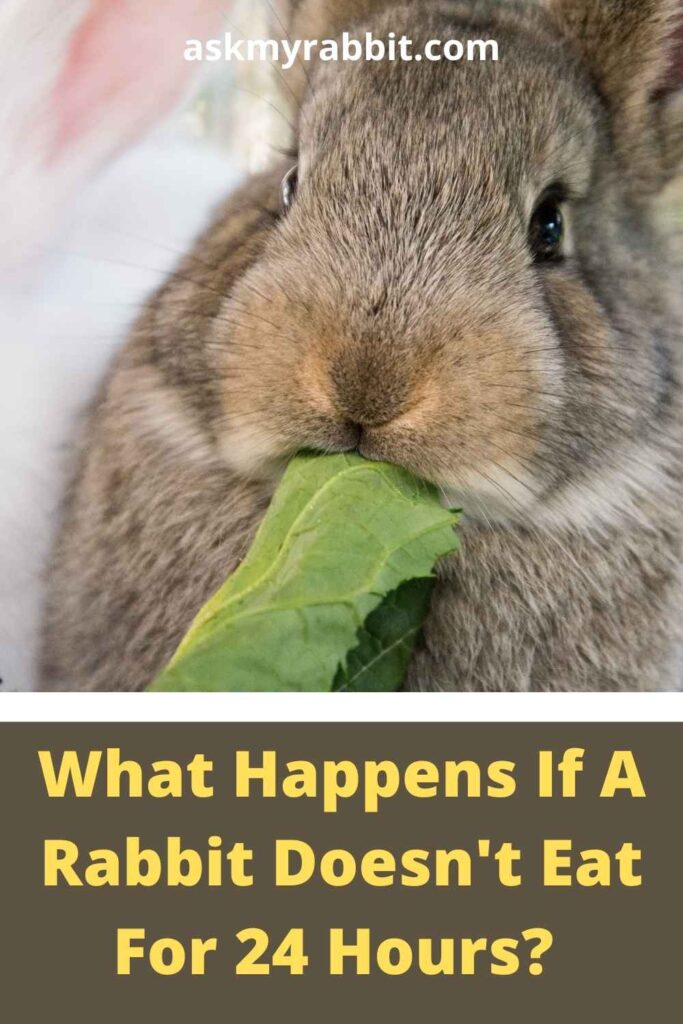
Rabbits are adorable and cuddly. However, their care when it comes to food and nutrition is quite different from that of pets. In contrast to other pets, rabbits have no mealtime and must have food available at all times.
Rabbits eat constantly since they are grazers. If they don’t eat for 24 hours, they may begin to suffer from a disease known as GI Statis. This may lead to death.
When a rabbit has GI Stasis, the stomach becomes dehydrated. The rabbit is unable to absorb nutrients. As a result, gas and food will accumulate in their digestive tracts.
Rabbits’ diets change throughout their lives, necessitating a variety of foods and quantities. In addition to pellets, alfalfa, and grass, rabbits also eat a variety of hay and vegetables. They may eat some fresh fruit on occasion, but this is rare.
Measure out the proper serving sizes of pellets and veggies every day. However, you may provide grass and hay, which are permitted in limitless quantities. Restrict your rabbit’s fruit intake to a minimal quantity. Feed your rabbit around one to two ounces per week in order to avoid overfeeding.
Investigate whether veggies and fruits are suitable for your rabbit’s diet. You must also find out how often you should feed them. Never give your rabbit anything that isn’t specifically approved by a veterinarian or other animal nutritionist.
Your rabbit should be fed a smaller portion of pellets if you see that they are gaining weight and becoming overweight.
Frequently Asked Questions
Why Does My Rabbit Not Eat Hay?
The way you’ve set up your rabbit’s cage may be to blame if he refuses to eat his hay. Because rabbits usually defecate while eating, positioning the hay rack over the litter box encourages them to eat while going to the toilet.
Do Rabbits Need Hay Everyday?
Yes, rabbits need hay every day. Hay, fresh vegetables, and pellets should make up the bulk of a rabbit’s daily diet. The majority of a rabbit’s diet should consist of high-quality grass hay, such as Timothy or orchard.
How Much Pellets Should A Rabbit Eat Everyday?
One-quarter cup of pellets is all that an average-sized adult rabbit requires each day. For rabbits under five pounds, feed a quarter of a cup of pellets. Pellets are a non-essential element of a bunny’s diet. Therefore, more than a quarter of a cup is sufficient for rabbits weighing more than 10 pounds.
Final Words
Rabbits may be left alone for a few days as long as they are provided with enough food and water to sustain them. For more than a few days, you’ll need someone else to look after them.
Rabbits are wonderful, low-maintenance pets for families. Because of this, they are excellent first pets for children.
Your rabbit will be happy and healthy as long as you provide it with a clean living space, nutritious food, and enough water.
We hope this article has been able to answer all your queries regarding your bunny friend’s eating habits. If you have any more queries, drop them in the comment section below. We will answer them soon!


